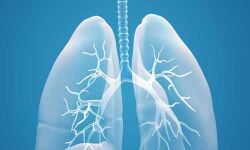- Home
- Medical news & Guidelines
- Anesthesiology
- Cardiology and CTVS
- Critical Care
- Dentistry
- Dermatology
- Diabetes and Endocrinology
- ENT
- Gastroenterology
- Medicine
- Nephrology
- Neurology
- Obstretics-Gynaecology
- Oncology
- Ophthalmology
- Orthopaedics
- Pediatrics-Neonatology
- Psychiatry
- Pulmonology
- Radiology
- Surgery
- Urology
- Laboratory Medicine
- Diet
- Nursing
- Paramedical
- Physiotherapy
- Health news
- Fact Check
- Bone Health Fact Check
- Brain Health Fact Check
- Cancer Related Fact Check
- Child Care Fact Check
- Dental and oral health fact check
- Diabetes and metabolic health fact check
- Diet and Nutrition Fact Check
- Eye and ENT Care Fact Check
- Fitness fact check
- Gut health fact check
- Heart health fact check
- Kidney health fact check
- Medical education fact check
- Men's health fact check
- Respiratory fact check
- Skin and hair care fact check
- Vaccine and Immunization fact check
- Women's health fact check
- AYUSH
- State News
- Andaman and Nicobar Islands
- Andhra Pradesh
- Arunachal Pradesh
- Assam
- Bihar
- Chandigarh
- Chattisgarh
- Dadra and Nagar Haveli
- Daman and Diu
- Delhi
- Goa
- Gujarat
- Haryana
- Himachal Pradesh
- Jammu & Kashmir
- Jharkhand
- Karnataka
- Kerala
- Ladakh
- Lakshadweep
- Madhya Pradesh
- Maharashtra
- Manipur
- Meghalaya
- Mizoram
- Nagaland
- Odisha
- Puducherry
- Punjab
- Rajasthan
- Sikkim
- Tamil Nadu
- Telangana
- Tripura
- Uttar Pradesh
- Uttrakhand
- West Bengal
- Medical Education
- Industry
Mid-life weight loss slows natural decline in lung capacity in elderly

Lung capacity is measured by forced vital capacity (FVC) and forced expiratory volume (FEV). It's an important indicator of future ill health and life expectancy.
There's plenty of evidence linking overweight and obesity in adulthood with poorer lung capacity, but most of the studies have been relatively short term and tracked the respiratory health of people only up to the age of 50.
Researchers have found in a 20-year long study that mid-life weight gain is linked to an acceleration in the natural decline in lung capacity that comes with ageing, But mid-life weight loss is associated with the slowing of this ageing process, emphasising the importance of maintaining a healthy weight, to stave off serious respiratory ill-health, say the researchers. The study has been published online in the journal Thorax.
To gauge the potential longer-term impact of changes in weight, the researchers drew on data from the European Community Respiratory Health Survey (ECRHS). This has been tracking the health of more than 10,000 adults aged 20 to 44 since the early 1990s.
For the purposes of this study, the researchers included 3673 participants from 26 locations in 12 countries in Europe and Australia. Their weight, height, and lung function were measured at three time points over a period of 20 years.
Information on other potentially influential factors was also collected: whether they smoked or had been exposed to secondhand smoke; whether they had asthma; how often they exercised; and whether they had any other serious condition, such as diabetes or cancer.
Their average age was 34 at the start of the study, and 54 when they had their last check-up. At the start of the study, around one in eight (12%) was underweight; over half (57%) were of normal weight; around one in four (24%) was overweight; around one in 20 (6%) was obese.
During the monitoring period, almost 4% of participants lost weight, while weight didn't change in around a third (34%). Around half (53%) put on a moderate amount of weight (0.25-1 kg/year) and around one in 10 (9%) put on a lot of weight (more than 1 kg/year).
Analysis of the results showed that changes in weight over the 20 years were associated with the rate at which lung capacity declined.
Among those with a healthy weight, or who were overweight or obese as young adults, moderate and high weight gain were associated with a speeding up of the decline in lung capacity.
On the other hand, weight loss among those who were obese as young adults over the following 20 years was associated with a slowing in this decline.
This was also the case for those who had been underweight at the start of the study, and whose weight remained stable throughout the monitoring period. But the decline was also faster among the underweight who put on a moderate amount of weight.
This is an observational study, and as such, can't establish cause, added to which the findings drew on total body weight, which can't distinguish between muscle and fat. Nor were the researchers able to assess how long it takes for a change in weight to affect the lungs.
Nevertheless, the findings echo those of previous studies, they say. And, together, they "reinforce the public health message that overweight and obesity have deleterious effects on health, including respiratory health," they write.
"However, the negative effects of overweight and obesity on lung function can be reversed by weight loss even in later adult life," they point out. "Therefore, public health policies that promote healthy lifestyles and body weight may be important for maintaining good lung function in adult life," they conclude.
For further reference log on to :
http://thorax.bmj.com/lookup/doi/10.1136/thoraxjnl-2019-213880
Dr Kamal Kant Kohli-MBBS, DTCD- a chest specialist with more than 30 years of practice and a flair for writing clinical articles, Dr Kamal Kant Kohli joined Medical Dialogues as a Chief Editor of Medical News. Besides writing articles, as an editor, he proofreads and verifies all the medical content published on Medical Dialogues including those coming from journals, studies,medical conferences,guidelines etc. Email: drkohli@medicaldialogues.in. Contact no. 011-43720751


